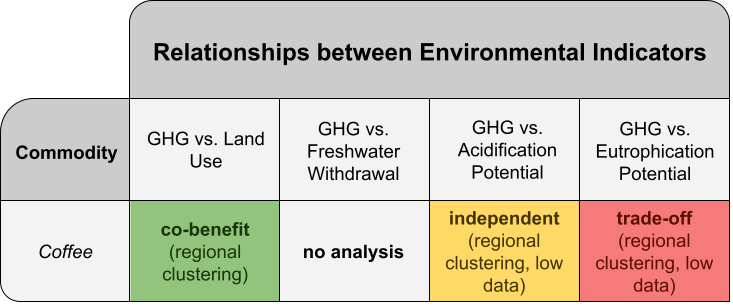
Coffee is one of the most popular beverages in the world, likely because of its caffeine content. While coffee production, like other commodities, may contribute to negative environmental effects, coffee crops are also sensitive to climate change. If climate change continues on its current path, coffee production may be forced to move to a more temperate climate.
The focus of coffee conservation efforts should be tailored to individual countries, as different countries appear to exhibit different trends and trade-offs. According to our analysis, GHG emissions and eutrophication potential must be balanced in sustainability efforts, due to trade-offs frequently being found between the two. Additionally, wet processing of coffee is strongly correlated with increased GHG emissions; this relationship should be explored and mitigated where possible.
Despite organic coffee production being lauded as a more sustainable way to produce coffee, our analysis so far indicates that organic coffee production may not have any significant effect on adverse environmental factors.
Further research should find reliable data for freshwater use, energy use, soil phosphates, and soil nitrates and compare them to the factors analyzed above. Additionally, further research should be done on organic farming to determine if it is as sustainable as previously claimed. More research is needed to determine why some countries’ coffee farms have higher negative effects than others.

